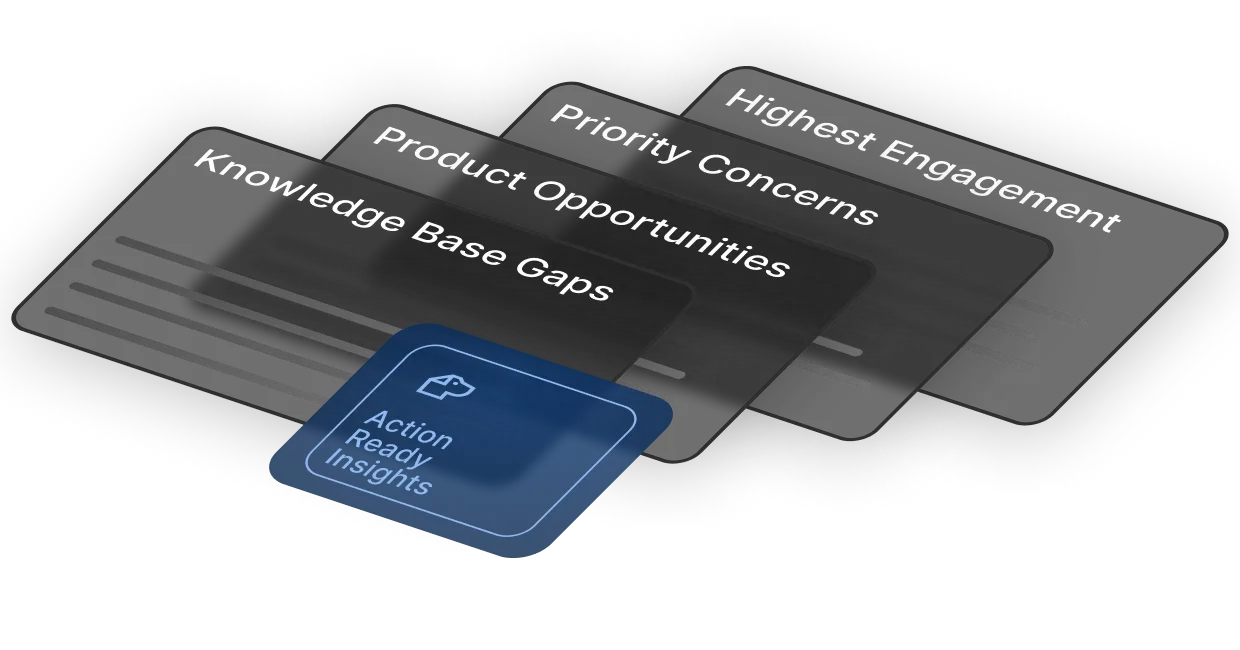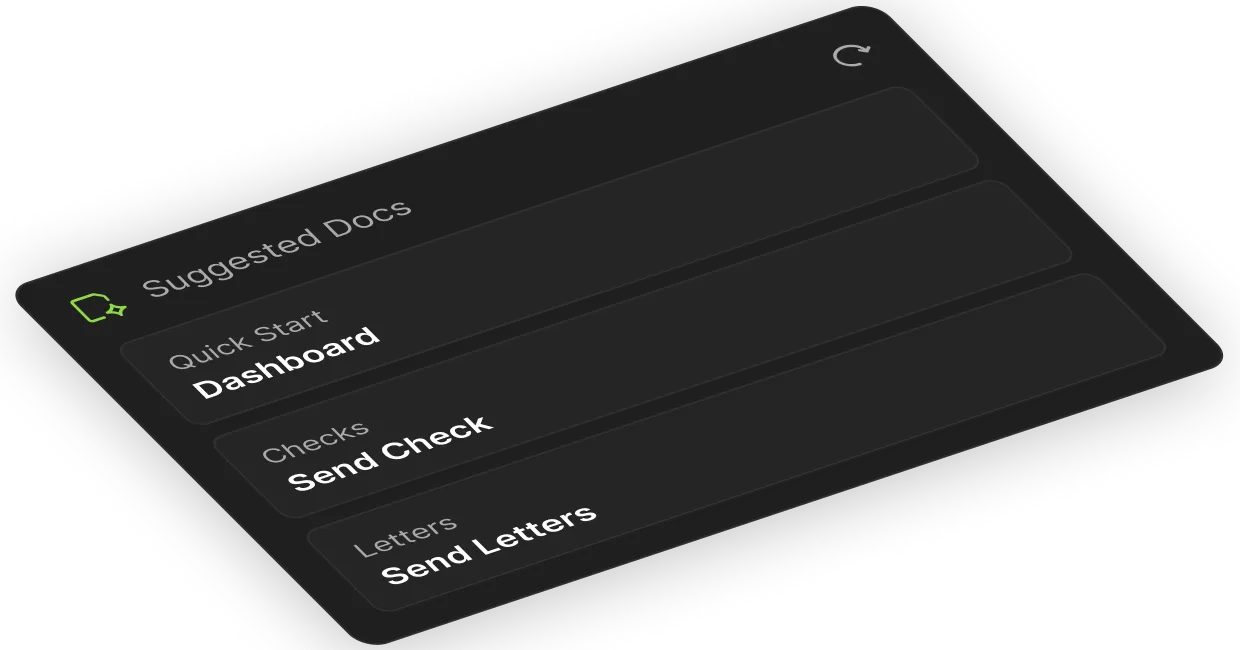Convert thousands of user interactions into clear, prioritized improvement opportunities without manual analysis
Weekly reports identify exactly what to improve next, based on actual user behavior patterns and engagement metrics

Move beyond analytics to automated intelligence. Discover exactly what your users need before they have to ask.
Product teams use DocsHound to stay ahead







Convert thousands of user interactions into clear, prioritized improvement opportunities without manual analysis
Weekly reports identify exactly what to improve next, based on actual user behavior patterns and engagement metrics

Identify missing documentation before it creates support tickets by analyzing search patterns and failed queries
AI detects when users search for undocumented topics, automatically suggesting new content opportunities ranked by urgency

Transform support conversations into documentation improvements by capturing the exact language your users actually employ
System automatically identifies recurring questions from chat logs and recommends documentation updates that match user terminology

Skip the spreadsheets and dashboards. Receive specific, actionable recommendations instead of raw analytics
Documentation evolves automatically based on actual usage patterns, not assumptions about what users need
Measure the direct impact of documentation improvements on support ticket reduction and user satisfaction
Traditional analytics show page views. DocsHound delivers actionable intelligence.
The system analyzes search patterns, failed queries, and navigation paths. Results highlight specific documentation gaps and improvement opportunities. Weekly reports prioritize actions based on business impact, not just raw numbers.
DocsHound captures the complete documentation journey.
Metrics include search terms, navigation paths, time spent per section, successful vs. failed searches, and content engagement. Support ticket correlations identify which documentation gaps create customer inquiries. ROI calculations quantify how documentation improvements reduce support costs.
Knowledge gaps appear in user behavior. Our AI finds them systematically.
The system analyzes search queries with no matching results, partial content views followed by support tickets, and terminology patterns in customer conversations. These signals identify exactly what users need but can't find in your documentation.
Yes. Unified analysis across all content sources.
DocsHound aggregates behavior data across multiple guides, domains, and content types. This comprehensive view reveals cross-navigation patterns and provides unified analytics across your entire knowledge ecosystem.
Documentation value becomes measurable, quantifiable, defensible.
The system correlates documentation improvements with support ticket reduction, showing direct cost savings. Success metrics include self-service rates, support deflection percentages, and time-to-resolution improvements. These numbers translate documentation efforts into bottom-line impact.